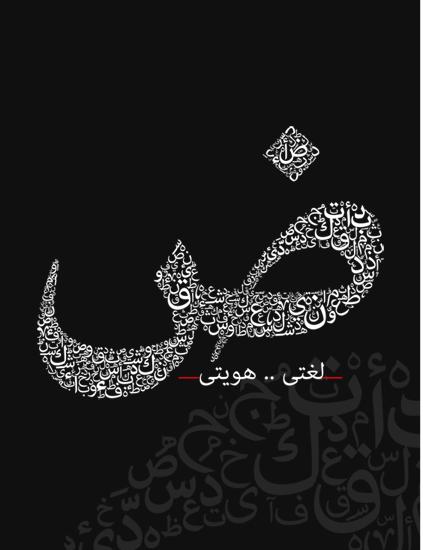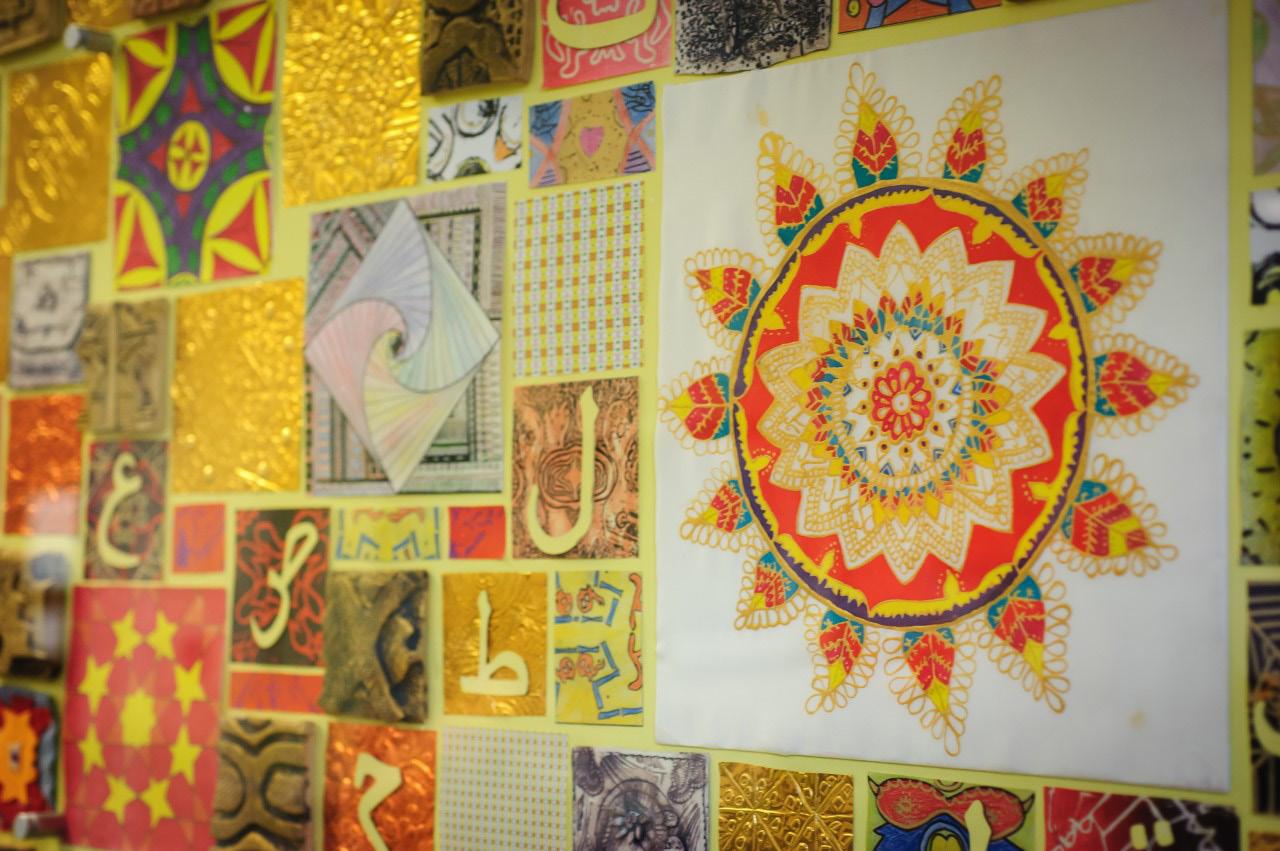
6 minute read
The Power of Language: QFI’s Arabic Program
from A2Q Issue 3
by QatarAmerica
QFI Arabic Teaching The Power of Language: QFI Arabic Program
“Languages are the bedrock of the world’s cultural heritage. Every language offers a rich and unique insight into different ways of thinking and living, as well as into the history of the myriad of cultures and peoples across the globe.” - British Council, Languages for the Future
Advertisement
It is Arab Culture night at Lincoln High School in Portland, Oregon. Students from four levels of Arabic language classes, taught by Ruqayya Jarad, have created a beautiful setting in the school cafeteria filled with Arab art, calligraphy, and Middle Eastern food. During the evening the students dress in traditional Arab clothing and perform a dabke dance. There are performances by local Arab musicians and a henna artist paints on hands. Hundreds of students from the school - friends, families, and teachers - visit throughout the evening. Ruqayya beams at her students, who, for the most part, are Americans who would normally have little or no connection to the Arab world.
Language is one of the most important parts of any culture. It is the way by which people communicate with one another, build relationships, and create a sense of community. The phrase, language is culture and culture is language is often mentioned when language and culture are discussed. Using this context, Alfred L. Krober, a cultural anthropologist from the United States, said that culture started when speech was available, and from that beginning, the enrichment of either one led the other to develop further. Language education means, inevitably, language and culture teaching. The International Council for Educational Development states “Culture learning is actually a key factor in being able to use and master a foreign linguistic system.”
Qatar Foundation International (QFI) recognizes language learning is a key aspect of maintaining cultural heritage and using language is an integral way to share culture. Craig Cangemi is a Senior Program Officer at QFI. In this role, he develops and implements opportunities for educators to develop a better understanding of the Middle East and the Arab world and to provide effective strategies for teaching about the region in the classroom. He says, “Language is the key to unlocking a deeper understanding of a region or society’s culture. When you learn a new language, one is not only learning sentence and grammatical structures, but he/she is given means to gain insight into societal and individual history, values, and customs. When teaching a language, it is essential that the culture where the language belongs be taught together, given the interconnectedness between the two.”.
Teachers often lack the ability to purchase materials they need for their classrooms to engage students and improve their learning outcomes. To help, QFI offers Classroom Resource Enrichment Grants (CREGs). These grants provide educators with supplementary funding to purchase educational tools and resources or hold activities to further explore the Arabic language and Arab culture. Teachers have used the grants for student-centered resources and materials,


including costs associated with activities related to the grants for studentcentered resources and materials, including costs associated with activities related to Arabic language that involve the greater school community or highquality Arabic language resources. In addition, each year the Middle East Outreach Council (MEOC) recognizes outstanding books by Arab authors or about the Middle East region. QFI’s MEOC Educator Book Award makes classroom sets of these books available to schools.
QFI is an educational organization committed to advancing Arabic language teaching and learning. QFI supports innovative, research-based Arabic language programs in state funded primary and seconary schools and works to increase access to Arabic instruction for educators and students around the world. The QFI approach to Arabic language education is based on over 10 years of experience in the field of language learning. Our expertise is in collaborating with, identifying, and supporting the needs of the entire ecosystem of Arabic language education in schools worldwide.
For example, in addition to more traditional Arabic language programs, we currently partner with Public School 261 in Brooklyn, New York, where Rita Lahoud teaches Arabic language, art, and culture “It’s a unique, multidisciplinary, project-based program that teachesthe Arabic language through art,” she says. “Lessons are about the art and culture of the Arab world and instructions are given in Arabic.”
“Even if my students do not grow up to be Arabic language experts or even fluent in the Arabic language, they will have deep knowledge and respect for Arab culture and art,” she says. “This is so important in today’s political and social climate. Education programs like ours can go a long way in changing perceptions, and in giving children the necessary tools to refute stereotypes.”
Beyond school programs and classroom grants, QFI provides numerous resources for teachers and students that support learning culture through language. QFI’s Resource Portal provides educators with free, high-quality instructional materials for educators to quickly find and teach about the Arab World. Throughout the years we have developed fun and engaging tools such as the Tilemaker application, which introduces students to fundamental concepts of Islamic art and architecture through the explorations and creation of mosaic tile art. We provide a robust infographic library for all to explore. Every year we partner with organizations, such as Embrace Doha, to host numerous events that tie Arabic language to culture, such as virtual holiday meals, art programs, and music programs and virtual exchange. For many years prior to the pandemic, we supported teacher and student travel to Qatar for the purpose of learning about culture through language.


culture, such as virtual holiday meals, art programs, and music programs and virtual exchange. For many years prior to the pandemic, we supported teacher and student travel to Qatar for the purpose of learning about culture through language.
In the summer, QFI provides support for high school students to continue their Arabic language studies and for university students to have an immersive experience in the Arab world. Melissa Murdock received a QFI education award to attend an intensive Arabic study abroad program in Amman, Jordan while she was a linguistics and Arabic double major at Georgetown University. He said, “It became clear to me that communication, whether spoken or expressed through the daily non-verbal exchanges of communal interaction, facilitates meaningful connections between individuals. Communication is a core feature of society and its culture, and helps to facilitate an openness to ideas, dialogue, and change.

As I used the Arabic language I was learning - haltingly at first but with greater fluency over time through constant practice – I came to appreciate and further understand the importance of communicating in the local language. Through studying the Arabic language, I was afforded the opportunity to connect with people from another culture.
Arabic was the means to learning about the world around me and contributing what I could to it. It allowed me to give help to a child on the street, to ask cultures of the Arab world.
Arabic was the means to learning about the world around me and contributing what I could to it. It allowed me to give help to a child on the street, to ask about a shop owner’s family, and to share what I could from my own culture with others.”
In the 42 cities impacted by QFI grants where we work globally, with the 3,100 Arabic language teachers who have benefited from professional development, and the 6,500 students who have studied Arabic in QFI-supported school programs, the relationship with QFI has been transformative. It has opened not just eyes, but hearts and minds, to both the Arabic language and the diverse cultures of the Arab world.







